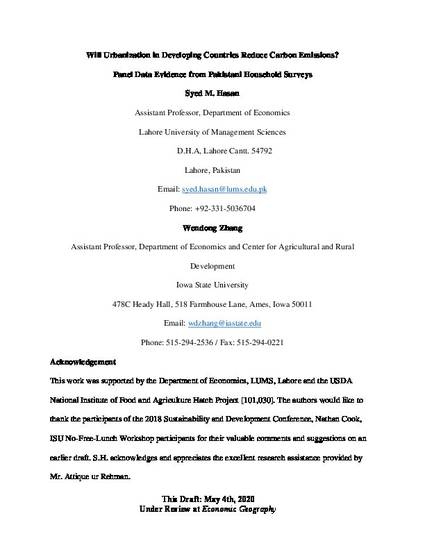
Using four rounds of nationwide household survey data from the Pakistan Social and Living Standards Measurement Survey from 2005 to 2014, we provide the first empirical estimates of districts’ carbon emissions and their changes over time based on representative households’ energy consumption. We find that hotspots for carbon emissions in Pakistan tend to cluster around megacities—Islamabad has the highest per capita carbon emissions. This is contradictory to the compact city hypothesis that denser cities are greener, with lower per-capita carbon emissions, than remote cities, and suggest that urbanization in developing countries may not reduce carbon emissions. Our results also show that ignoring household garbage would underestimate the urban carbon footprint by at least 15%. Finally, our results demonstrate the importance of incorporating rural households and their primary energy usage such as firewood, and the fluid nature of carbon emissions and greenness ranking over time in developing countries like Pakistan.
Original Release Date: May 4, 2020
Available at: http://works.bepress.com/wendong_zhang/115/
